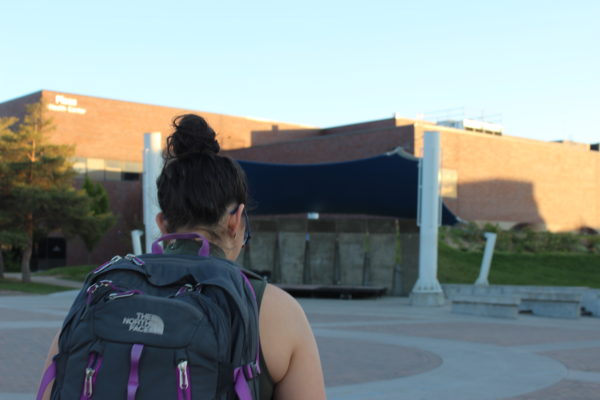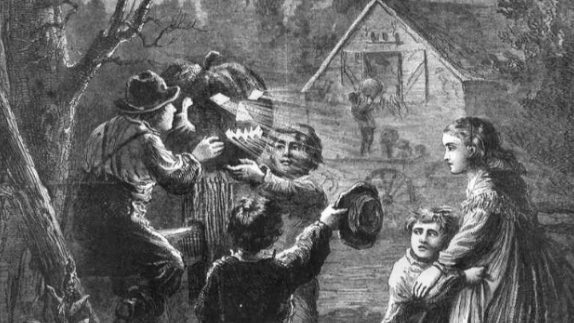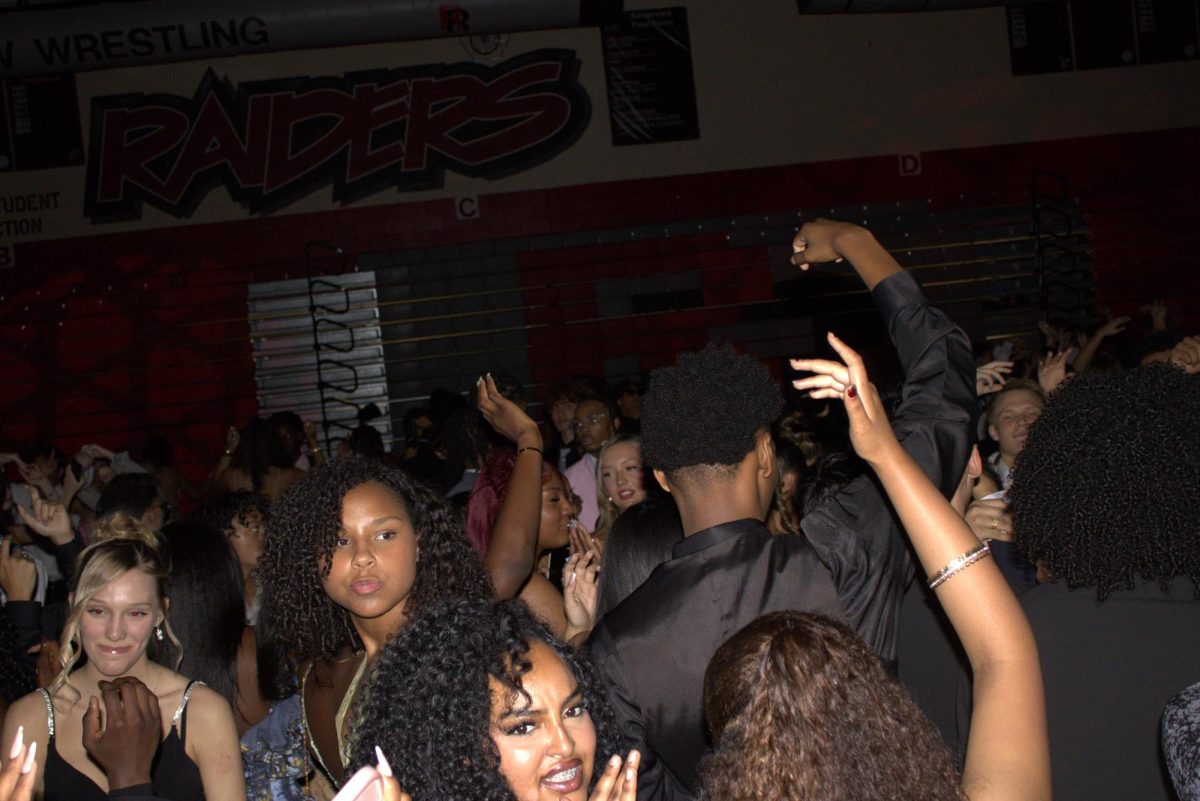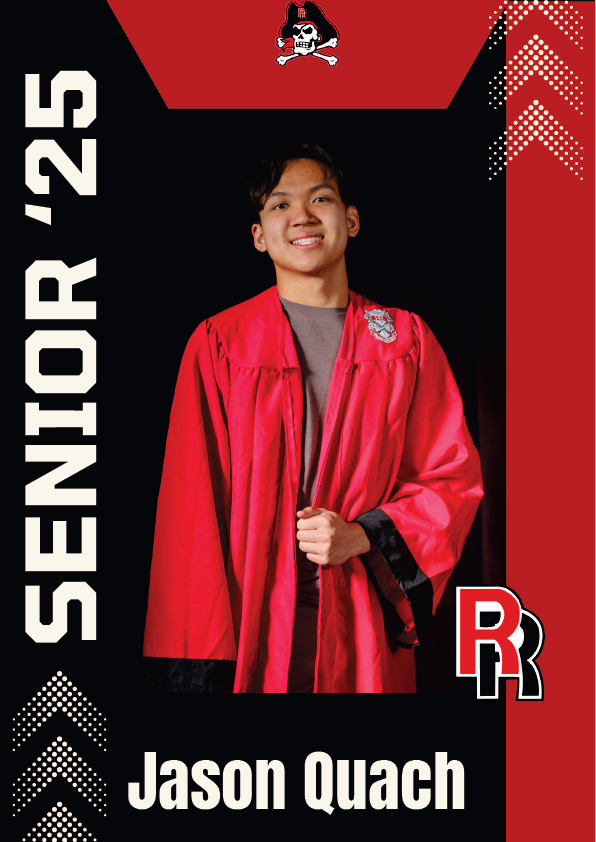Feature Photo By: Jessica Rangel – Maria Rangel heads to her statistics class at Metropolitan State University of Denver. She is finishing up her classes and getting ready to graduate.
Bright and early, college student Maria Rangel wakes up at 7:30 am to get a head start on her day. As soon she’s ready, she bolts out the door to head to the RTD station which takes Rangel to her first class at the Metropolitan State University of Denver. After a full day of classes, she walks to her job at the Women’s Institute where she is able to express activism as a passion. With little time after work, Rangel still manages to juggle tutoring young students even with her heavy load of homework.
To anybody, this just sounds like another busy college student’s schedule, but there is one thing about Rangel that sets her apart from the rest of her peers: unlike most students who attend Metro, Rangel is one of the few who is undocumented in the United States.
At just the age of seven years old, Rangel and her family moved to the U.S. in search of a better life.
“At the time, I didn’t really know what was happening, but I knew it was something life changing,” says Rangel. “I was definitely afraid and I remember not wanting to let go of my grandma knowing it could be the last time I see her.”
As soon as Rangel entered the United States with her two parents and older sister, she knew she stuck out like a sore thumb. Everything around her was completely foreign and in a language she had only heard in movies and music. From this moment on, Rangel’s life changed forever.
As she grew up in a predominantly white community and learned a new language, all while trying to keep up with her other classmates, Rangel struggled a lot to settle into her new home.

“For the longest time, I remember I was so shy fearing that the other kids would make fun of me for my accent,” says Rangel.
Rangel always knew that she was different from the other children, but she was young and her family being undocumented was the least of her worries as a child. In fact, being undocumented didn’t stop her at all from growing up, as it had little to no affect on what she could do. The effect wasn’t prominent until she came to her junior year and everyone was talking about college except her.
“I actually didn’t really know that being undocumented stopped me from going to college until I tried applying for college credit in my Calculus class, realizing I didn’t have a social security number to enter,” says Rangel.
In that moment, everything Rangel had worked for and all of her hard earned grades were worth nothing due to the fact that she was undocumented. Rangel was ashamed and developed a resentment towards her parents.
“Many nights, I wondered why my parents brought me here,” Rangel claims, “why they thought I would’ve had a better life in a country that didn’t even accept me.”
As the idea of college revolved around her last two years of high school, Rangel had no hope in being able to attend a university. Even in high school, there was hardly anyone she could turn to for help on her situation. When teachers asked Rangel of her future plans, she never knew if she could talk about being undocumented.
“It wasn’t a common thing to be undocumented, and even if it was, it was always a thing to keep a secret,” Rangel says. “I couldn’t reach out to my counselor or anyone. I truly had to figure everything out on my own.”
Jeanette Rojas who is currently employed at College Track, a college completion program for students from underserved communities, works with undocumented students to reach a higher education.
“Although undocumented students still have a rough time getting by, I definitely have noticed it is more accepted and easier now to find help if you are undocumented,” Rojas says.
After Rangel graduated in 2009, she was proud to have finished high school, but she knew she needed more out of life. For a long time, Rangel felt defeated by the only country she ever knew. There had to be a way for her to get a higher education in the U.S., and Rangel was determined to find it.
Rangel researched the internet to find millions of people all over the country in her same exact position. Throughout her research, Rangel was able to find the Development, Relief, and Education for Alien Minors Act, also known as the DREAM Act.
In an article from 2012 the American Immigration Council states, “there are approximately 1.8 million immigrants currently in the United States who might meet the requirements of the deferred action initiative, either now or when they are older.”
Rangel realized that she wasn’t alone and that there were people just like her, fighting for their education despite being undocumented. Within her research, Rangel found an extended Metro campus that offered a reduced amount of out-of-state tuition for undocumented students. For almost a whole year, Rangel attended classes on the other campus, but it was becoming harder and harder to pay for each semester.
That’s when Colorado governor John Hickenlooper passed the ASSET bill, allowing undocumented students to attend any Colorado university and to be able to pay instate tuition. With this new bill, Rangel no longer had to go to the extended campus and could officially transfer to Metro’s main campus with instate tuition. Tuition becoming equal for citizens and undocumented students was a massive step for Rangel’s education.

Rangel continued her education, hopeful in the DREAMers movement to keep battling for their rights. As a result of DREAMers nonstop fight in 2012, the Deferred Action for Childhood Arrivals, or DACA, was approved under Obama’s presidency.
By giving DACA to undocumented students, it allows them to receive a temporary social security number that opens up the opportunity to work legally. For Rangel, this was something she knew she needed to afford college and to find a career after college as well. As soon as Rangel could, she applied and in a month her work permit finally arrived. With her new work permit, she was also given a Colorado ID and a chance to work at Metro at the Women’s Institute.
“I want people to hear my story and know that I am not ashamed of who I am,” explains Rangel. “I hope I can inspire others to work for what they want no matter how difficult.”
After a rocky five years, Rangel relentlessly worked to finish school, where she is now on her way to accomplish college with a major in Mathematics.
There is no doubt that Rangel encountered many roadblocks being undocumented, but she never let it define who she was. Rangel knew she had to work hard if she wanted to compete with everyone ahead in the game. Finally graduating from Metro on Friday May 12th, 2017, Rangel is proud of her long journey and cannot wait for what is yet to happen in her ongoing fight to have every undocumented student’s voice be heard.






